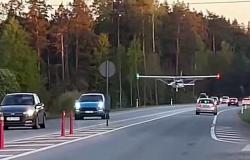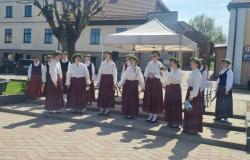Babies are at the highest risk of severe illness and death from whooping cough, and in EU/EEA countries almost all deaths have been in this age group – babies under three months of age. Therefore, it is especially important to vaccinate pregnant women against whooping cough during pregnancy, as it gives a significant protective effect to the child until he reaches the age of vaccination. Babies are supposed to receive the first vaccine against whooping cough at the age of two months according to the vaccination calendar. Publicly paid pertussis vaccination is available for pregnant women.
Latvian epidemiological surveillance data show that in 2024, 155 cases of whooping cough were registered from January to March, and in 2023, 21 cases were registered in January-March. In 2023, a total of 111 cases of pertussis were registered.
The highest incidence in 50 years was observed in 2019, when 720 cases of pertussis were registered, or 37.5 cases per 100,000 inhabitants. Even now, there is a trend of increasing morbidity.
SPKC states that a pronounced increase in the number of pertussis began in December 2023, when the number of registered patients exceeded the number of patients in December 2022 by 4.3 times. Periodic increases in incidence are associated with an increase in the number of people susceptible to infection. As the spread and intensity of circulation of the pathogen in the community increases, the risk of infection also increases for babies who have not yet been vaccinated or who have not completed the course of primary vaccination against pertussis and are therefore particularly susceptible to this very serious infection. For this reason, it is very important to start vaccination on time and follow the vaccination schedule, SPKC emphasizes.
According to the current vaccination calendar for children, the vaccine against pertussis should be received at the age of two, four, 12-15 months, seven and 14 years. At two, four, 12 to 15 months, you can be vaccinated with the combined vaccine against whooping cough, diphtheria, tetanus and poliomyelitis, Haemophilus influenzae type B and hepatitis B, at the age of seven years with the combined vaccine against whooping cough, diphtheria, tetanus and poliomyelitis, or At the age of 14 – combined vaccine against whooping cough, diphtheria, tetanus.
Content continues after commercial
Advertising
Currently, compared to the pre-pandemic period, the number of unvaccinated children who have not received the pertussis vaccination between the ages of seven and 14 has significantly increased.
SPKC reminds parents to take an active interest in and regularly follow the vaccination data in their and their child’s Vaccination Passport and the instructions of the vaccination calendar, and to apply themselves or apply for the child’s vaccination at the family doctor at the specified times.
Vaccination in Latvia against whooping cough was started in 1958. The total number of cases of illness in the five years before the start of vaccination was 27,367, but in 2019-2023. in 1228. The reduction in the number of cases from the start of vaccination is 95.5%.
Whooping cough is a highly contagious, acute respiratory infection caused by the rod-shaped bacterium Bordetella pertussis. The disease is characterized by a severe, paroxysmal cough that can last for two months or even more.
Before the introduction of vaccination in 1958, whooping cough was a very widespread disease, which mainly affected children under the age of five, mostly under the age of one. Currently, the highest morbidity is observed in teenagers, children under one year of age and young adults.
Report an error in the article
Highlight the incorrect text and press Ctrl+Enter.
Mark the wrong text and report it!
Tags: incidence whooping cough increasing Latvia
-





